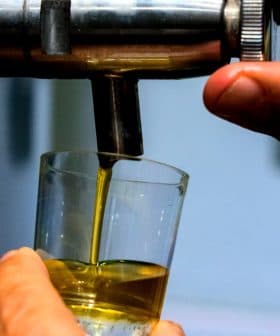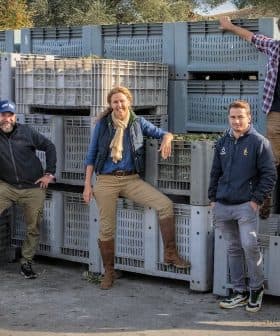Italy Set to Deal Major Blow to 'Agribusiness Pirates'
A new law would protect Italian agriculture by letting prosecutors pursue frauds anywhere in the supply chain.
The Italian government has proposed a new law to combat fraud in the agriculture product chain, introducing criminal penalties for those falsely claiming products are made in Italy. The bill aims to protect the integrity of Italian agricultural products, particularly extra virgin olive oil, from forgery and fraudulent practices that harm true Italian producers.
A broad and complex new law proposed by the Italian government and sent to Parliament for approval is aimed at fighting frauds in the agriculture product chain.
We as small producers cannot compete even if we are the ones with the true Italian product.
The bill introduces new criminal penalties for those who produce, transform, package, distribute, sell or profit from agricultural products that falsely claim to be made in Italy.
Several years in the making, the proposed law coined “agribusiness piracy” for the crime committed by organizations that define their products as organic when they are not, or enterprises that lie about the true origin of their products. Prosecutors say they will go after offenders in Italy and abroad.
A new framework to protect the Italian extra virgin olive oil from forgery has been one of the main goals of the special Agrimafia Commission that produced the text of the proposed law.
For years, growers associations lamented that true Italian EVOO often ended up in international markets after having been mixed up with olive oils from different origins. As a result, many true Italian producers have had to compete with olive oils labeled as “Italian” but were comprised of oils from Tunisia, Spain Greece and others.
A process known as “triangulation” consists of importing usually large quantities of olive oil, producing false certifications and packaging it as “100 percent Italian.” The proposed law defines the practice as an assault on the agribusiness sector.
See Also:Olive Oil Fraud“Triangulation means unfair competition, it means that we as small producers cannot compete even if we are the ones with the true Italian product,” Pietro Maiorana, a small olive oil producer in Sicily, told Olive Oil Times. “We have been asking for real and deep massive checks on the import of discounted olive oils from other regions.”
As it stands now, fraud can only be prosecuted when the final product hits the market. With the new law under consideration, it will be possible to act with the same legal force at any time in the production chain, from the farm to the supermarket shelf.
Italian farmers, who consulted lawmakers throughout the bill’s drafting, are hopeful. It is a major step, they say, but the struggle against criminals in the agribusiness is far from over.
“Organized crime in agriculture operates by stealing means of production and animals, by blackmailing or even conditioning the choice of workers to enroll on the field, transportation or guard services to rent, or else by damaging the fields and also through aggressions, usury, illegal slaughtering and frauds against the European Union,” the farmers’ association Coldiretti said in a statement.
Minister of Agriculture Teresa Bellanova said the new law recognizes the value of food identity and “protects the Made in Italy geographical indications and the consumers.”
“The forgery of the Made in Italy every year costs our country €100 billion ($110 billion), which has to be compared to the €42 billion ($46 billion) of true Italian agribusiness exports — an identity theft that damages our producers, undermines consumers’ health and may deteriorate the reputation of our country.”









